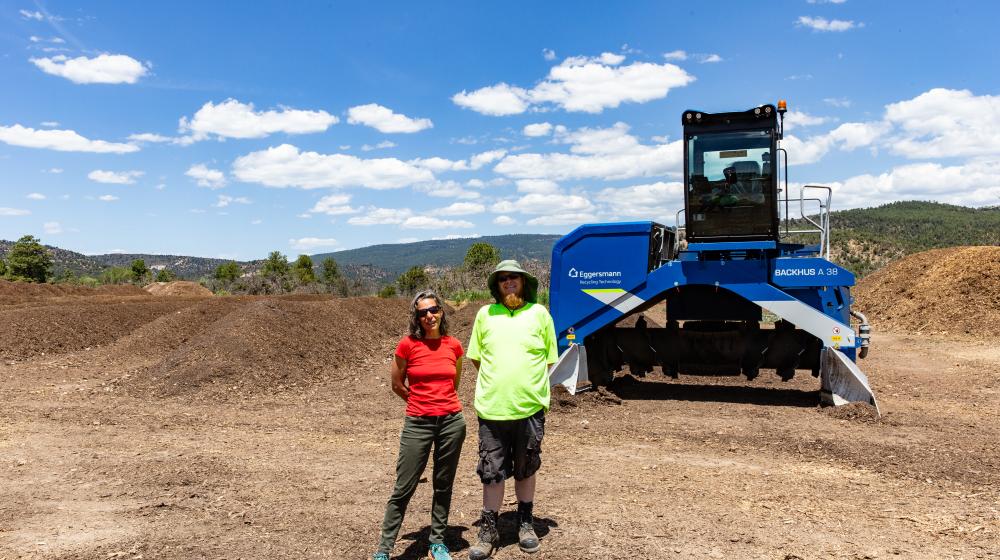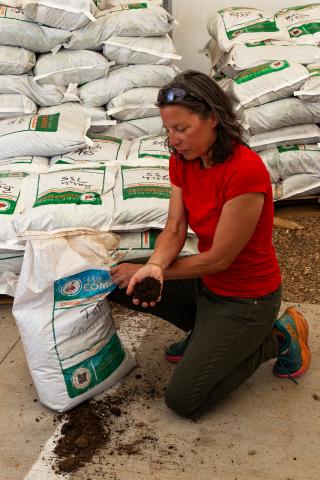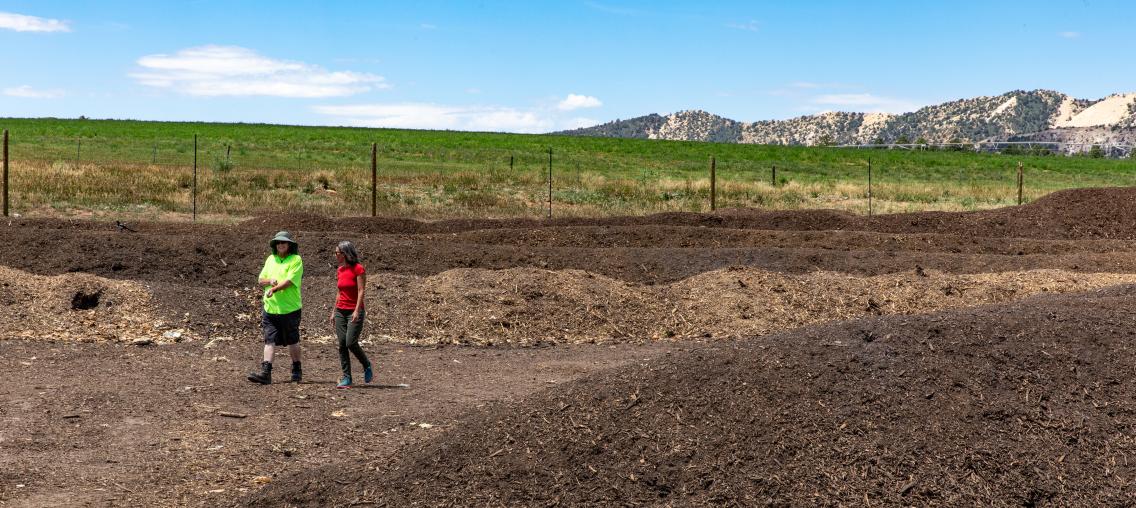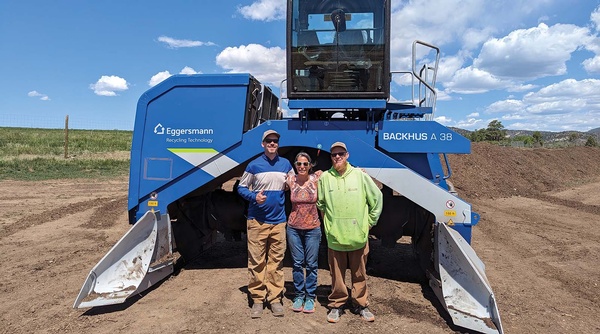
For Monique DiGiorgio, co-owner of Table to Farm Compost in Durango, Colorado, there is a full circle order to things. What we put out into the world has the potential to directly impact what we receive back.
At Table to Farm Compost, this cycle happens in a literal manner every day. The organization’s mission is simple: “to recycle food waste into compost and save the earth.” They take organic waste materials from households, businesses, and even state and land management organizations, and transform it into a beneficial product through a thermophilic composting process. Finally, this product is sold back into the community for use in farms, agricultural production, greenhouses, and home gardens. This recycling process has many benefits, chief of which, for Monique, is the “save the earth” concept.

“Imagine a scenario in which all of this is going to a landfill, being covered so there’s no oxygen, so it’s an anaerobic environment and you create methane,” Monique says. “Whereas you bring it here, and within a week it’s starting to look like compost.”
The story is a popular one in Durango. Over the past handful of years, Table to Farm has grown from 100 customers to nearly 850. When Monique first took a leadership role, she saw a tremendous potential for growth and pursued opportunities to expand the operation and use the area’s community-driven spirit to propel it forward.
She and her partners worked with the City of Durango to encourage household composting. This promotional trial resulted in both growth for the business model and extra support from the city’s sustainability planning actions. This is just one early example of how Table to Farm sought to scale up.
In 2023, they secured a huge boost. USDA Rural Development awarded Table to Farm Compost a $2.6 million grant through the Fertilizer Production Expansion Program (FPEP). This investment allowed them to purchase land instead of leasing the too-small plot they’d previously occupied.
“We’re standing on 4.5 acres. Land in La Plata County is not inexpensive so one thing FPEP does is reduce risk, scale up, stabilize the business, so that we can grow successfully,” says Monique. “That just wouldn’t have happened without state and federal support.”
The FPEP funds also helped bring power to the site to allow for remote temperature monitoring, and to purchase crucial equipment to cut manual labor time to a fraction of what it once was. By purchasing a massive, complex windrow turner, Farm Manager Jeremy Church says his time turning compost piles is cut from hours to minutes.

The long rows of compost are an impressive sight. It’s acres of tall straight heaps in various stages of composting. “Our oldest stuff here is a year,” Jeremy says, when referring to the compost rows. “So imagine it’d be like a year at a landfill you’d have all this stuff just filling up the landfill. It’s not like it’s going anywhere useful!”
Once it has reached its final product, the compost is bagged and prepared for customers, of which there are many.
“In a small, rural community like Durango, Colorado, La Plata County, a remote part of Southwestern Colorado, that community is important. They support our mission. That’s 800 customers that compost with us that support our mission to recycle compost and save the planet,” says Monique.
Monique says the infusion of state and federal funds “will take the compost facility into the 21st century or beyond that,” which is exactly what she’s going for.
“The story of keeping the nitrogen and carbon out of the landfill is just about one of the most compelling things in terms of climate, local economy, and end product for farmers and agricultural producers to use as a full loop. I felt really strongly about the business and I also feel strongly that business can be a force for good, even though we’re not a nonprofit. So this is the perfect kind of business for me. I don’t want to see all this go to the landfill. I really don’t.”

